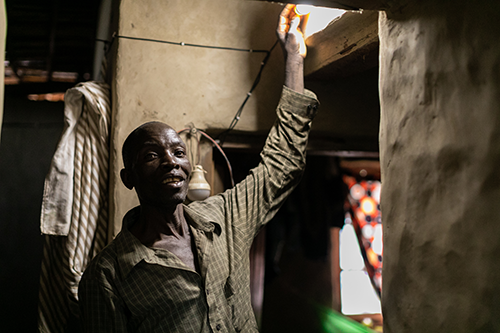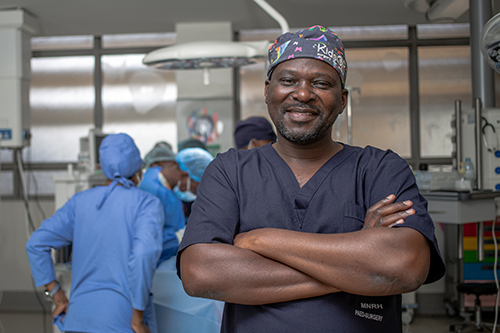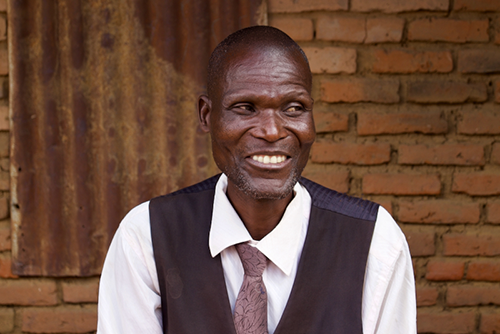International Aid and Development 2024 winners: SolarAid
Why they won
- Value for money: The product price point means that even the poorest households can light their homes
- Replicability: Other countries are now looking at taking up the model
- Sustainability: Once the lights are installed in their homes, families will continue to benefit and the charity will continue to receive income
Across sub-Saharan Africa, 590 million people currently live without access to electricity; 17 million of these are in Malawi. After sunset, many households have to burn dangerous and expensive paraffin candles or kerosene lamps to provide light.
 Innovative solutions such as plug-and-play solar home systems could be quickly deployed in countries such as Malawi so that households would have access to affordable energy. The problem with these devices is that they are too costly for the poorest communities to buy, even when solar companies offer payment by instalment.
Innovative solutions such as plug-and-play solar home systems could be quickly deployed in countries such as Malawi so that households would have access to affordable energy. The problem with these devices is that they are too costly for the poorest communities to buy, even when solar companies offer payment by instalment.
SolarAid, which has distributed over two million solar lights across sub-Saharan Africa through its social enterprise SunnyMoney, knew that without game-changing action, there would be little chance of achieving the sustainable development goal of universal access to electricity by 2030.
The charity discovered that if low-income customers did not have to buy their own solar light systems, many could afford to pay to use them. As a result, it created the Light a Village project, whereby for the first time solar systems would be installed for free in every Malawian household.
The pilot project began in 2021 in Kasakula, a deprived community with 7,500 households that had no electricity grid access and no rural electrification plans for the next decade. It initially brought solar light and power to 500 homes in exchange for a small daily fee – 70 Malawian Kwacha a day (around 7p).
Since then, SolarAid has installed 2,500 solar home systems that have allowed an estimated 10,000 people and 12 schools to access electricity. It also trained 50 local community service representatives and 10 assistants.
The project is ongoing and expected to benefit all 7,500 households this year, with an extra 5,000 solar home systems set to cover the whole Kasakula community.
Solar enterprises in Senegal, Sierra Leone and Madagascar have now expressed an interest in replicating the scheme.
Charity Awards judge Richard Hawkes, chief executive of British Asian Trust, said of the project: “The impact was good, it was innovative, it was cost effective, it was replicable, and it had the potential to scale.”
CC Reg no. 1115960
Kids Operating Room
Kids Operating Room has installed 86 operating rooms in 30 African, Asian and Latin American countries, creating capacity for children to access safe surgery. However, frequent power outages in these operating rooms threaten lives as machines and ventilators shut down. So in 2022, the charity invented an innovative solar surgery product that monitors power outages and powers operating rooms for up to 11 hours. It has now equipped 10 operating rooms with this technology and aims to retrospectively install it in all its operating rooms by 2030.
Reprieve
In a 2007 landmark ruling, Malawi’s High Court declared the mandatory death penalty unconstitutional, meaning that around 200 death row prisoners were entitled to new sentencing hearings in which mitigating factors could be considered. However, limited resources to carry out investigations meant that by late 2014, only one person had had their death sentence reviewed. To prevent further stalling, Reprieve formed a coalition of national and international partners to launch the Malawi Resentencing Project. Over 10 years of hard work, the coalition successfully helped release 169 people from death row.



